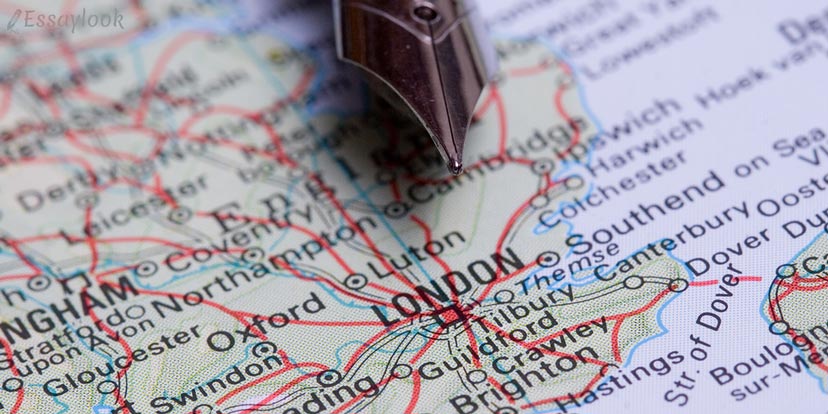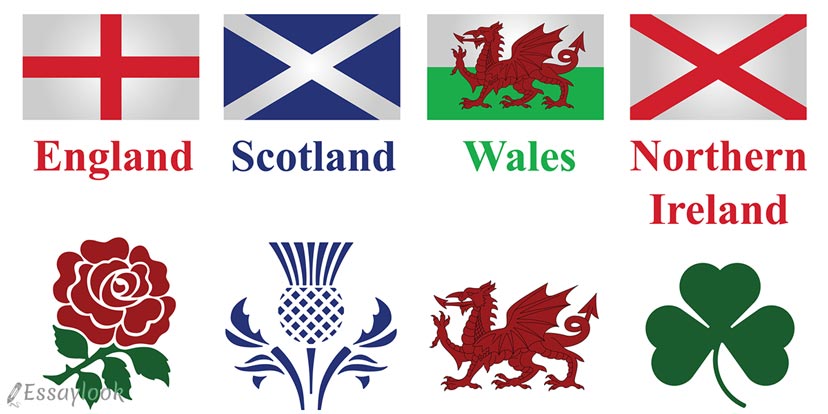
If the history of the UK looks quite complicated for you but has to be learned as soon as possible, we will help you to get into all the peculiarities of the United Kingdom and discover even more amazing facts that might impress you and your peers as well. If you struggle with writing, contact us and we will do your essay at essaylook.com/write-my-essay!
First True Inhabitants
The first inhabitants on the territory of modern England were believed to be Celtic tribes. However, even before that, there were the Iberians, who were called after the Iberian Peninsula, covering the territory of Portugal and Spain nowadays. Those came from Africa and were working with metal in the 8th century A.D. already. The Celts came after them in 43 A.D. and succeeded in displacement of the local tribes.
Tribes Placing and Their Names Origins
London carries its name after a brave Roman warrior Landinium (as the legend says), another hypothesis says it derives from the same Latin word which is defined as "a square mile". In 410 Romans left but the German tribes came afterwards. They were called the Angles which name is believed to be from Latin origin. From this definition comes the name of the whole country, occupied by Angles called "Anglesland" and transformed to today's England.
Regarding to the name of Wales, it also has a very interesting hypothesis. It says, the Germanic tribes who came to the territory of today's England, could not and did not want to understand the Celts and their language. Hence, they have called them "wealas" (another variant is "walas") which means "foreigners" and pushed them right to the territory of Wales where they stayed.
Scotland's origin of the name also has a story. According to the legends the Celtic tribes which were pushed to the north of land, have established their own Kingdom. The mightiest powerful one called Scotti, has named it after themselves as Scotti-land which led to Scotland afterwards.
Two legends are related to the name of Ireland. The first one tell us about a green dragon who lived in that area and had a heart of iron. Another one comes from the word "eire" which means "west" in Celtic.
The province of Britannia has been established by Romans in AD 43, we also know the same named province in France which is directly related to each other. The name of Great Britain or "Grande Bretagne" literally reflects the whole country in contrast to Britannia as only the part of Great Britain named by Romans as well.
Flags and Symbols
Each country had its own patrons and heroes to honor. Each one had special emblems that would point out their land from any other.
- England. The flag of England was a round red cross on the white background in honor of St. George the patron of England, his day is celebrated on the 23rd of April;
- Wales has its flag in white and green colors symbolizing flourishing nature with a dragon in the middle. Its St. patron is St. David and the day of him is to be on the 1st of March;
- Scotland's national flag is a diagonal white cross on blue background. Its look is from a legend about the battle of Picts and Scots against the Angles, St. Andrew has assured the leader of Scot's army in their victory and the cross which appeared in the sky formed by the clouds was said to be a sign of the power of their patron. This day is celebrated on the 30th of November nowadays;
- The patron of Ireland is St. Patrick and the day of celebration is the 17th of March. The national also known as St. Patrick's Saltire, the flag was a red diagonal cross on white background. The tricolor as we know it today (green, white and orange) was created only in 1922.
National Emblems of Great Britain

England - red rose (based on the war of white and red roses - dynasties). Oak as the tree of the nation;
Scotland - thistle;
Wales - daffodil flower (also, leak), dragon;
Northern Ireland - shamrock as an emblem of Christianity.
Why are the emblems so important there? We cannot be certain about how the symbols of these lands have emerged but we are pretty sure how much they meant to their citizens. Unlike the flags and blazons that were mostly royal marks, people in the country had their own peculiarities to distinguish them from others. They were based on the landscape of the land, the tribe that has dominated there at most or simply flora and fauna that was wide spread and could serve as a significant emblem of the uniqueness of the country.
The Language Spoken
This part of the development is extremely interested, the tribes were moving, some of them came only recently, others have rooted and created their own system of language, influenced their neighbors and took something from them as well. The English have got their language from the Germanic tribes, Scotland and Ireland have a mix of Gaelic with the impact of the English, but in Wales there is a fully formed language, called Welsh, which emerged from Brittonic actually. Ask any English speaker if they understand such a close relative of them. As you see, the history of Great Britain is rather perplexed but worth studying it as only in that way you will fully dive into this beautiful land.
